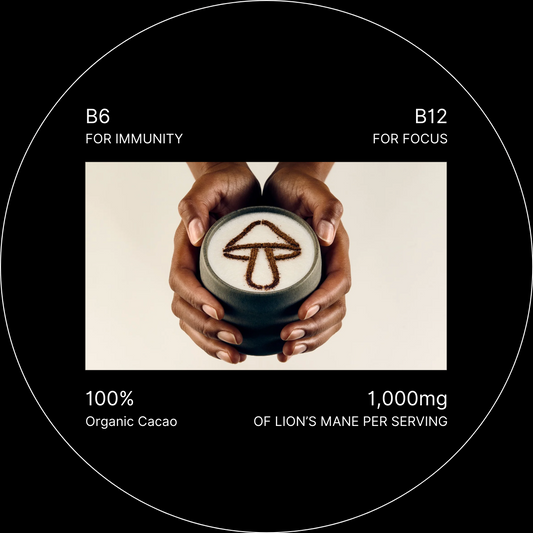The Science of Circadian Rhythm: Why Less Daylight Can Make You Feel Sluggish (and How to Reset Your Rhythm—Naturally)

Share
As daylight hours shrink and evenings arrive earlier, many people notice a subtle yet powerful change in their energy and focus. Mornings feel slower, concentration dips earlier, and motivation seems harder to summon. While it’s tempting to blame the weather, the real reason often lies deeper—in your circadian rhythm, the internal 24-hour clock that regulates when you sleep, wake, and perform at your best.
Your circadian rhythm is highly sensitive to light. When the amount and timing of daylight change, so does the clock’s ability to stay synchronised. The result can feel like constant jet lag: sluggish mornings, restless nights, and uneven energy. But understanding how this rhythm works can help you restore it naturally—through light, routine, and a few simple rituals.
What Is the Circadian Rhythm?
Your circadian rhythm is your body’s internal 24-hour clock, regulating everything from hormone release and metabolism to sleep and focus. The term “circadian” comes from the Latin circa diem, meaning “about a day.”
At the centre of this system is the suprachiasmatic nucleus (SCN) in the brain’s hypothalamus—your master clock. It uses light detected by the eyes to stay in sync with day and night, controlling hormones like melatonin (for sleep) and cortisol (for alertness).
Every cell in your body also has its own mini clock—in organs like the liver, muscles, heart, and gut—all following the SCN’s rhythm. When these clocks are aligned, your energy, focus, and rest stay balanced. But when they fall out of sync—often from poor light or irregular routines—you can feel tired and sluggish.
According to the National Institute of General Medical Sciences, circadian rhythmicity influences everything from digestion and immunity to mental clarity.
How Daylight Shapes Your Internal Clock
Light is the main signal (or zeitgeber) that keeps your circadian rhythm in sync with the day-night cycle. Morning light tells the brain’s SCN to lower melatonin and raise cortisol—helping you wake up. As evening darkness returns, melatonin increases again, signalling it’s time to sleep.
In autumn and winter, these natural cues weaken. Later sunrises and shorter days mean you get less bright light in the morning and more artificial light at night. This throws off your internal clock, leaving you feeling sluggish or unfocused.
The light gap in numbers
- Summer daylight can reach up to 100,000 lux on a sunny day.
- In winter, even at midday, it rarely exceeds 10,000 lux—while indoor lighting averages just 300–500 lux.
- That means your brain may get up to 200 times less light in darker months, confusing your body’s natural rhythm.
A study found that spending 1.5 hours in bright morning light for five workdays improved sleep efficiency, reduced restlessness, and helped participants fall asleep earlier compared to regular office lighting—suggesting that morning light exposure can enhance sleep quality and alertness in people who spend most of their day indoors.
Why Less Daylight Makes You Sluggish
When light exposure decreases, your circadian rhythm drifts. Here’s how that plays out physiologically:
1. Melatonin lingers longer
Morning light usually halts melatonin production. Without enough brightness, melatonin stays elevated later into the morning, leaving you groggy and slow to start.
2. Cortisol release flattens
Cortisol peaks early to help you feel energised. Shorter, dimmer days delay this surge, reducing mental clarity and motivation. Over time, the mismatch between melatonin and cortisol creates that “out of sync” feeling.
3. Cellular energy dips
Circadian timing regulates mitochondrial function—the cell’s energy factory. When rhythms are disrupted, ATP (your body’s energy currency) production becomes less efficient.
4. Sleep quality declines
A misaligned body clock can shorten or fragment sleep. Even if total hours remain the same, sleeping at the wrong internal time reduces deep sleep and memory consolidation. According to an article, when our internal body clocks fall out of sync with work schedules—as often happens with night shifts—it can lead to slower reaction times, reduced focus, and poorer decision-making.
The Wider Impact: Light, Mood, and Metabolism
Circadian rhythms don’t just govern sleep—they affect nearly every aspect of health. When disrupted, they can influence mood, digestion, immune resilience, and metabolism.
For instance, a study found that people who spent about 1.5 hours a day outdoors had the lowest risk of developing depression, regardless of their genetic predisposition.
Science-Backed Habits to Restore Your Rhythm
The good news: your circadian rhythm can be retrained. These simple, natural adjustments can help bring your body back into alignment.
1. Get outside early
Aim for 20–45 minutes of daylight within the first 90 minutes after waking. Even on cloudy days, outdoor light is strong enough to reset your SCN. If sunlight is limited, position your workspace near a bright window.
2. Keep your sleep-wake time consistent
Going to bed and waking up at the same time—even on weekends—keeps your circadian rhythm stable. Variations of more than 60 minutes can cause measurable delays in melatonin release.
3. Avoid late-night brightness
Exposure to blue-rich light from screens or LED bulbs can suppress melatonin twice as much as warmer light. Dim the lights 90 minutes before bed, switch screens to “night mode,” and consider amber bulbs in the evening.
4. Time your meals and movement
Eating and exercising at regular times reinforce daytime cues for peripheral clocks in your muscles and gut. Schedule workouts or substantial meals earlier in the day for better synchrony.
5. Create mindful transitions
Behavioural cues are powerful. Repeating a simple ritual each morning or evening teaches your body when to switch modes. This is where a daily DIRTEA ritual can work wonders.
Building Your Circadian-Friendly DIRTEA Routine
DIRTEA’s pure mushroom powders and gummies are crafted to complement your body’s natural cycles—boosting focus in the morning, supporting stamina through the day, and encouraging calm at night.
|
Time of Day |
Focus Area |
Recommended DIRTEA Ritual |
Nutrient Support |
|
Morning |
Alertness & cognition |
Lion’s Mane Focus Powder, Mushroom Matcha, or Mushroom Coffee |
Contains organic zinc and B vitamins, which contribute to normal cognitive function, energy metabolism, and immunity. |
|
Midday |
Energy & performance |
Includes vitamins B12 & B5, which contribute to the reduction of tiredness and fatigue. |
|
|
Evening |
Relaxation & restoration |
Contains vitamin B12, which contributes to normal psychological function and supports the nervous system. |
By aligning your mushroom rituals with natural light cycles—energising blends in the morning, soothing blends at night—you strengthen the very signals your body depends on to feel balanced.
The Takeaway
Your circadian rhythm isn’t just about sleep—it’s the foundation of your daily vitality. When daylight diminishes, the body loses its strongest time cue, leading to sluggish mornings and uneven focus. But by harnessing the science of light, timing, and natural rhythm—and pairing it with supportive DIRTEA rituals—you can help your body remember what time it really is.
A little light, a steady rhythm, and a nourishing cup can make all the difference.
FAQs
Q: What happens if your circadian rhythm is out of sync?
When your rhythm drifts, your hormones, temperature, and energy cycles fall out of alignment. This can cause grogginess, poor concentration, and difficulty sleeping even if you spend enough time in bed. Over time, irregular rhythms may also affect digestion and mood.
Q: Can I reset my circadian rhythm naturally?
Yes. Consistent light exposure, regular sleep times, and predictable habits can resynchronise your body clock. Most people notice improvement within a week when they prioritise morning light and evening calm.
Q: Does caffeine affect circadian rhythm?
Caffeine delays the timing of your internal clock when taken late in the day. Try to enjoy your coffee in the morning, and avoid caffeine at least 8 hours before bedtime to preserve sleep quality.
Q: What time should I go to bed for a healthy rhythm?
Aim to fall asleep around 2–3 hours after sunset and wake around sunrise if possible. Consistency matters more than the exact time—your rhythm adapts best when your sleep window is steady.
Q: How can mushrooms support a healthy circadian rhythm?
Functional mushrooms like Lion’s Mane, Cordyceps, and Reishi support the body systems that interact with your rhythm—focus, energy, and relaxation. DIRTEA blends also include vitamins such as B12, B5, and zinc, which contribute to normal energy metabolism and psychological function, helping your body respond smoothly to daily cycles.
References
- National Institute of General Medical Sciences. (2023). Circadian Rhythms Fact Sheet. Retrieved from https://www.nigms.nih.gov/education/fact-sheets/Pages/circadian-rhythms
- He, M., Ru, T., Li, S., Li, Y., & Zhou, G. (2023). Shine light on sleep: Morning bright light improves nocturnal sleep and next morning alertness among college students. Journal of Sleep Research, 32(2), e13724. https://doi.org/10.1111/jsr.13724
- Chellappa, S. L., Morris, C. J., & Scheer, F. A. J. L. (2019). Effects of circadian misalignment on cognition in chronic shift workers. Scientific Reports, 9, 699. https://www.nature.com/articles/s41598-018-36762-w
- Lin, J., Yang, H., Zhang, Y., et al. (2023). Association of time spent in outdoor light and genetic risk with the incidence of depression. Translational Psychiatry, 13, 40. https://doi.org/10.1038/s41398-023-02338-0














